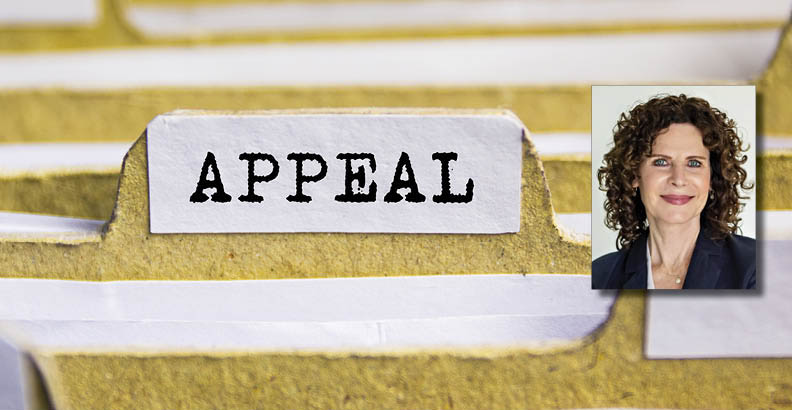SOLANA BEACH — Solana Beach Mayor Lesa Heebner last month beat a challenge to a defamation suit arising from a political rival’s false assertion in 2016 that she’d abused her public position for personal benefit.
For Heebner (plaintiff), the win clears the way for her defamation suit to proceed to a jury trial.
The defendant engaged in “mere political hyperbole and rhetoric,” attorney John Sylvester said in his Dec. 16 oral argument before the state’s 4th District Court of Appeal. The defendant “believes in the veracity of his research, his investigation and his statements that he made, to this very day.”
“In essence, [the defendant’s] position is that his publications were political opinions about a conflict of interest and not actionable. We disagree,” a panel of three justices, all concurring, said in their Jan. 6 published opinion. “Although political speech is appropriately accorded wide latitude, especially in election campaigns, calculated or reckless falsehoods can still amount to defamation.”
Here’s the backstory, as outlined in the court’s opinion.
Defendant Brian Hall served as campaign manager for Edward Siegel, who ran unsuccessfully for Solana Beach City Council in 2016. On multiple occasions, then-Councilwoman (now Mayor) Lesa Heebner publicly opposed Siegel’s candidacy.

“We need a Lisa [sic] retaliation,” Hall told Siegel in a text message, following one of Heeber’s unfavorable comments. Siegel later texted Hall concerning a “hit piece,” which would refer to Heebner, among others.
During the 2016 fall election season, in various emails, social media posts and publications, Hall repeatedly suggested “shady” or “backdoor” dealings to which Heebner and then-Councilman Mike Nichols were allegedly party.
In one email, Hall said Heebner and Nichols “lobbied” the regional transit district to award developer Joseph Balla a contract. Balla would in turn allegedly hire the councilmembers’ respective design and landscaping businesses, and also make a large donation to a nonprofit they favored. Hall said in another email that “many residents of Solana Beach believe Nichols and … Heebner have a financial interest in the proposal that was accepted.”
After one such communication to public officials and journalists, Siegel texted Hall, saying, “The seed has been planted,” praising Hall’s “inspired narrative.”
Matt Tucker, who heads the transit agency that Hall said Heebner lobbied, repeatedly told Hall the agency had granted no development contract.
Heebner, Nichols and Balla sued for defamation. Hall moved to strike the plaintiffs’ complaints under the so-called anti-SLAPP law, which aims to protect free speech against frivolous or bullying litigation. A lower court denied Hall’s motions, ultimately concluding that certain of Hall’s statements evidenced malice and amounted to libel. Hall appealed.
“Even if … there was no conflict of interest, a person is allowed to arrive at an opinion that there was, and express that opinion,” Sylvester said in his oral argument on Hall’s behalf. “Expression of that opinion goes to the core of the First Amendment free speech rights in this political context.”
“There is ill will, in nearly every political debate,” he said. “It does not equate to actual malice.”
“There seems to be a political strategy afoot,” namely, that a person can protect himself “by saying ‘rumor has it’ or ‘people are saying,’” Heebner’s attorney David Niddrie said in his oral argument. “But it accomplishes the same thing, which is, in the end, the prefatory language falls away, … and people believe what the statements are.”
The justices concluded: “Hall knew or at least consciously disregarded the fact that Heebner and Nichols had no role in the [transit district’s bid] selection process and the [transit district] had no agreement with Balla. … The evidence indicates that Hall was motivated by personal hostility to the plaintiffs and had little to no regard for the truth of the publications.”
The justices upheld the lower court’s denial of Hall’s anti-SLAPP motions, except in one instance, disagreeing that Heebner suffered injury due to a particular political advertisement. The court awarded Heebner and her co-plaintiffs costs on appeal.


